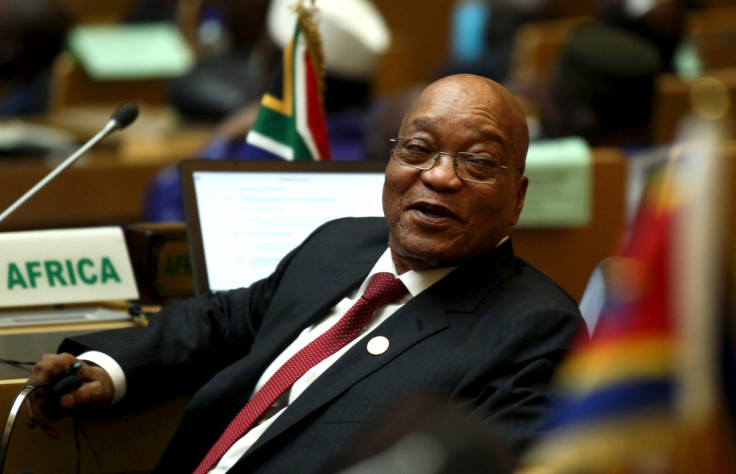UK denies claims it is trying to oust South Africa's President Jacob Zuma
The British government has denied allegations that it is trying to oust South Africa's President Jacob Zuma. A spokesperson for the Foreign Commonwealth Office told IBTimes UK: "The British Government does not interfere in democratic electoral processes in other countries."
South Africa's ruling party African National Congress (ANC) alleged the UK was planning to oust Zuma after a report from Vice news agency said officials from the Britain's Royal College of Defence Studies visited South Africa in 2015 to "assess the political threats to continuing ANC rule in South Africa".
In its report, Vice claimed the UK drawn up a secret report on how to keep ANC in power in the next local government election, which will be held this August. However, ANC's spokesperson Zizi Kodwa claimed this was just a way to distract South Africans from the UK's plan to unseat Zuma.
"We know they want to divert us from the real story. It [the UK] has done so in many other countries, working with America as part of a Western coalition, to unseat democratically elected government through undemocratic means. They are part of that agenda," he was quoted by News 24 as saying.
The UK Ministry of Defence explained that the visit was purely for academic purposes and aimed to enable students develop strategic analysis.
Zuma facing mounting pressure
The ANC's allegations against the UK surfaced as nearly 800 corruption charges against Zuma could be reinstated after being dropped in 2009.

The African leader is facing mounting pressure and has been urged to step down following growing discontent and allegations of corruption. The president is accused, among other things, of having close ties with the controversial Gupta family who are accused of wielding excessive political influence in the country. The Gupta family denies the allegations.
Zuma was also at risk of being impeached in April 2016 after the country's Constitutional Court ruled the leader and the National Assembly breached the constitution for failing to repay state funds used to renovate Zuma's Nkandla private residence, in KwaZulu-Natal province.
© Copyright IBTimes 2024. All rights reserved.






